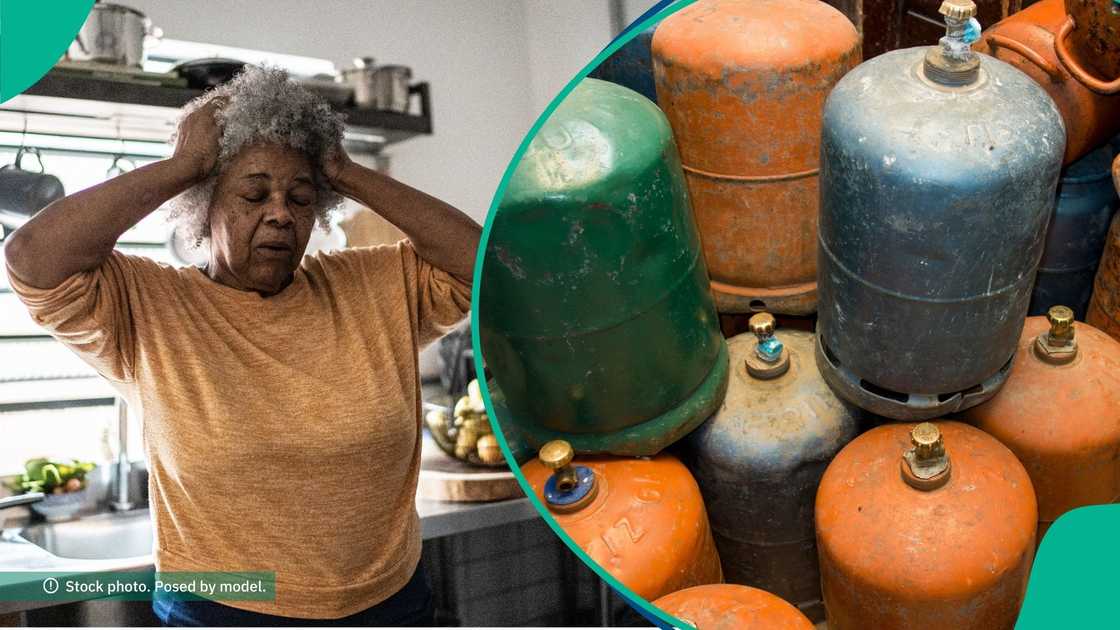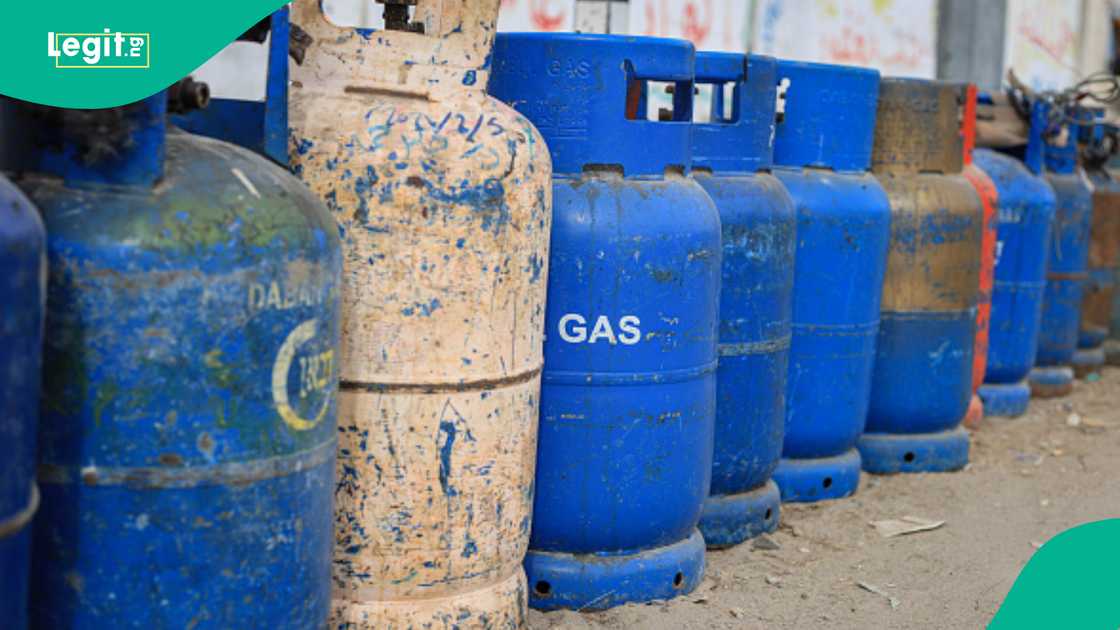Marketers Give Reasons for High Cooking Gas Price, Name Those Behind It
- Nigerians, especially residents in Lagos, are paying higher prices for cooking gas due to scarcity
- Checks show that refilling a cooking gas cylinder will cost between N2,000 and N3,000 per kilogram
- NALPGAM President Oladapo Olatunbosun blamed the hike on temporary supply disruptions and opportunistic dealers
Legit.ng journalist Dave Ibemere has over a decade of experience in business journalism, with in-depth knowledge of the Nigerian economy, stocks, and general market trends.
The price of Liquefied Petroleum Gas (LPG), also known as cooking gas, has skyrocketed, with a kilogram now selling for as high as N2,000 and in some areas up to N3,000, resulting in widespread concern over the cost of living.
However, gas marketers have said that the hike is not the result of any official price adjustment by authorities.

Source: Getty Images
Speaking on Channels Television on Wednesday, October 8, Oladapo Olatunbosun, the National President of the Nigerian Association of Liquefied Petroleum Gas Marketers (NALPGAM), named opportunistic dealers and temporary supply disruptions as the main reasons for the price hike.

Read also
Lady living in Ikorodu laments cooking gas scarcity, mentions "new" price for 1kg: “It’s too much”
He said:
“I sympathise with Nigerians because this situation was never our intention.
“I want to state clearly that there has been no official increase in the price of cooking gas. What is happening is that some marketers are exploiting the temporary supply shortage and rise in demand to make quick profits, which is wrong.”
Olatunbosun explained that the temporary maintenance at Dangote Refinery was the main cause of the supply issues, Tribune reports.
He noted that the situation was worsened by the recent PENGASSAN strike, which disrupted vessel discharges and inspections, leading to a nationwide supply gap.
Olatunbosun added:
“Before the strike, Dangote Refinery loaded around 50 trucks daily, but once maintenance began, trucks started spending up to 14 days at the facility.
"When the strike occurred, vessel inspections and product discharges were halted, leading to a nationwide shortage."
Prices expected to return to normal
He assured that the current price surge is artificial and temporary, promising that normalcy will return soon as supply improves.

Read also
Nigerian man gives update as he visits filling station for gas purchase, shares advice: "I dey fear"
Olatunbosun also advised consumers to buy directly from registered gas plants rather than middlemen to avoid inflated prices.
“Gas plants operated by our members, the price is between N1,000 and N1,300, depending on the area and transportation costs."

Source: Getty Images
He further revealed that Nigeria’s LPG consumption has grown from 1.2 million metric tonnes three years ago to nearly two million metric tonnes, making the market highly sensitive to supply interruptions.
He assured:
“We are working with relevant authorities to ensure steady supply and normal pricing in the coming days.”
Dangote slashes cooking gas price
Earlier, Legit.ng reported that Dangote Petroleum Refinery has decided to reduce the ex-depot price of cooking gas to N760 per kilogram.
The change represented a N10 reduction from the N810/kg sold previously.
The Nigerian National Petroleum Company Limited (NNPCL) has commended Dangote’s price cut, describing it as a “stabilising move” aligned with ongoing efforts to normalise supply.
Proofreading by James Ojo, copy editor at Legit.ng.
Source: Legit.ng

